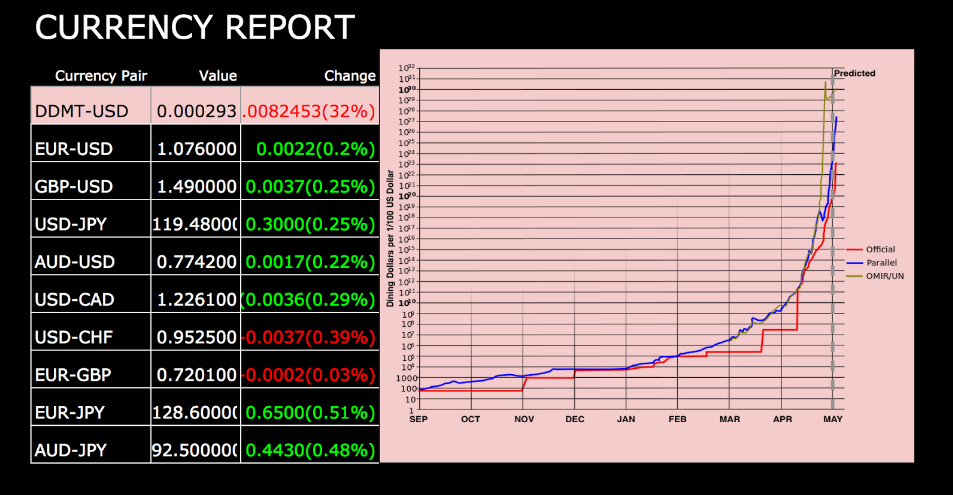Aggie Dining Braces for Rapid Currency Devaluation
With mere days until finals, Texas A&M Administration is bracing for the rapid devaluation, and possible collapse, of Dining Dollars and Meal Trades (DDMT or Đ)— the school’s official currency. The currency is floated against the US Dollar but investors have speculated a collapse in the value of the currency, causing panicked students to exchange the currency for tangible goods such as bottled beverages and 1000-packs of gray scantrons. The Trading Center with Mays reports that “students are realizing that they have several dozen more meal trades than they can consume during finals week and more Dining Dollars than the Aggie Express carries in inventory.”

.
The uncertainty of the campus economy has led to distrust of central institutions such as Chartwells and Aggie Express. Miranda Ross, junior applied mathematics student, was seen pushing a cartload of 35 rice bowls from Panda Express. She said, “I have to buy these while I can! 400 dining dollars can buy me a lot now, but when I wake up tomorrow, who knows what that will buy me? A slice of pizza from Sbisa Underground? I’m just thankful I have a freezer I can store these in for the summer.”
A panel of economics professors, headed by Dr. Thomas Saving, has been keeping tabs on indicators of instability within the market. “Of the many variables we observed, we found the most indicative symptoms of a rapid devaluation of currency was bulk purchases of non-perishable goods such as Gatorade and granola bars,” said Dr. Saving. “When digging through computer records, we found that the amount of meal trades redeemed by the average student increased exponentially as the end of the semester approached. As we approach summer, students are practically handing out meal trades.”
In an effort to prevent a total collapse of the currency, Dr. Saving suggested introducing a “negative quantity discount.” Unit price would increase when buying in large quantities, therefore discouraging students from moving their wealth from currency to food commodities.
If you’ve ever wondered who you have to thank for “north” at Texas A&M being pointed towards the local bar district instead of the north pole, look no further. A political activist and local alcoholic, his claim to fame and life achievement was convincing the city of College Station to legally define “north” as “of or denoting the direction from any specified area, city, or country towards the Northgate Entertainment District.”
